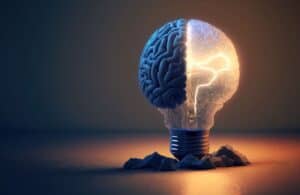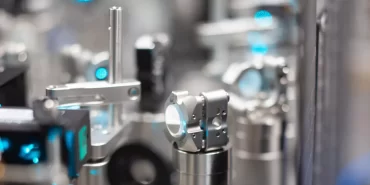
Generative AI systems could be used for thousands of innovations in the next few years, but it’s contentious whether they should get credit.
The rise of generative AI systems has brought current patent laws into question, as technologists and lawmakers struggle to define if an AI can be awarded or be included in a patent application.
Early assessments of this question have landed on the side of the humans, with a court ruling in the United States claiming that only “natural persons” can be awarded patents. The US Supreme Court appeared to uphold this decision, by not hearing a patent law case which involved an AI.
SEE ALSO: Generative AI: When Reality is Uncertain, Authenticity is Key
Even though the Supreme Court has skirted from the issue, it is not likely to go away, with the huge amounts of investment into generative AI systems which has happened over the past 12 months. We are seeing generative AI systems be deployed in cybersecurity, pharmaceutical, and industry research projects, with the aim of creating innovations in each respective industry.
The issue is contentious however, as allowing AI to apply for patents and receive them could upend the entire patent system. Patent protection is an incentive for humans to disclose new technology in exchange for a limited time monopoly. AI does not need this incentive, but it could be profitable for businesses which have full-control of the AI’s operations.
An argument for the acceptance of AI in patents has been provided by professor of Harvard Law School, Lawrence Lessig, who noted in a Supreme Court amicus brief that without it technologies developed by AI may not have any legal protections. In his statement, Lessig claims that the lack of protections could lead to the US economy being at a competitive disadvantage, and also incentivize owners of AI systems to conceal innovations.
“Because it completely deprives an entire class of potentially life-saving patentable inventions of any protections, the Federal Circuit’s affirmance of the US Patent and Trademark Office’s denial of a patent jeopardizes billions in current and future investments, threatens US competitiveness and reaches a result at odds with the plain language of the Patent Act,” said Lessig.
While AI may be responsible for the development of many innovations over the next decade, it is not a cut and dry case at to whether they can be awarded credit for it. Generative AI systems are trained on huge amounts of data, typically scraped from the internet or a data lake, which may include copyright or trademark material from other companies, sometimes without their prior consent. In cases like this, it seems unlikely that a generative system could receive a patent, and may in-fact struggle with its own legal issues if it tried to commercialize the technology.
“This process [of creating a generative system] comes with legal risks, including intellectual property infringement,” Gil Appel, assistant professor of marketing at GW School of Business, recently wrote in the Harvard Business Review, along with Juliana Neelbauer of Fox Rothschild LLP and David A. Schweidel of Emory University.
“In many cases, it also poses legal questions that are still being resolved. For example, does copyright, patent, trademark infringement apply to AI creations? Is it clear who owns the content that generative AI platforms create for you, or your customers? Before businesses can embrace the benefits of generative AI, they need to understand the risks — and how to protect themselves,” they explained in the article.
Even if an AI system is built primarily for the cause of innovation, if its underlying framework is one of these large language models which have absorbed billions of parameters of data throughout training, it may lead to hundreds of claimants for a single patent. This may be one of the key reasons why we haven’t seen much commentary from OpenAI, Google, and other leaders in the industry, as they may be unsure as to the outcome of a patent dispute in the Supreme Court.



























